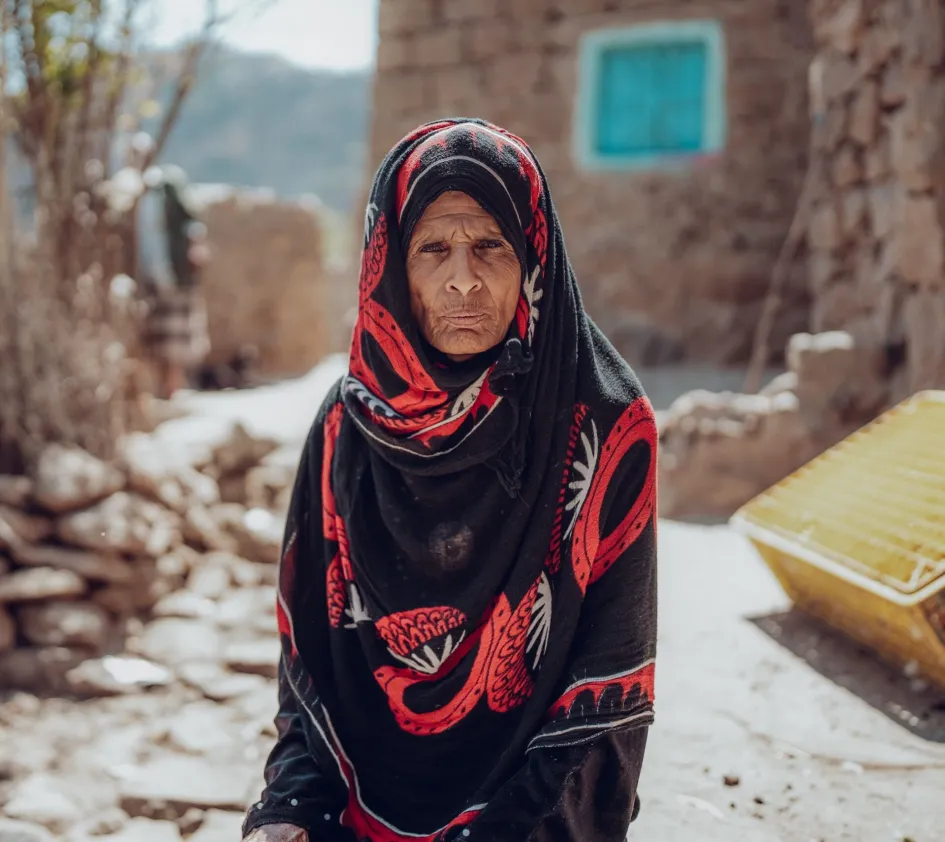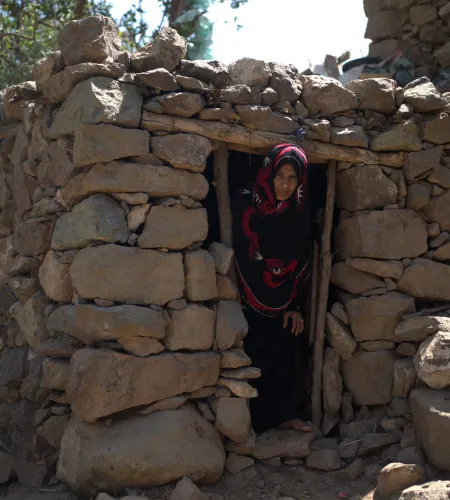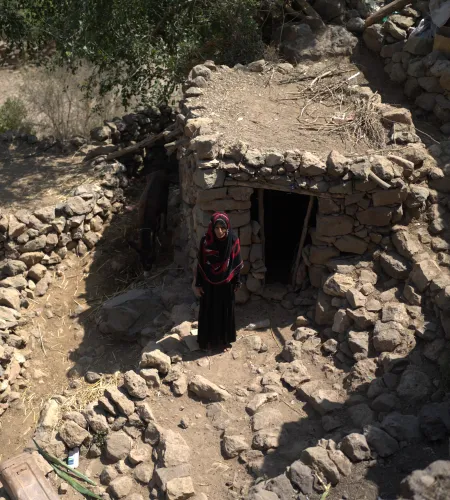Extreme hunger
Due to the shortage of food, many people in her village suffer from health problems. “We only eat to satisfy our hunger, not to nourish our body,” she says. Sometimes, the children are only given food later in the day, so they don’t go to bed on an empty stomach.
Illness is widespread in the village. There are people with disabilities, and others who have suffered strokes. But there is no money for medication or for adult diapers. Ni’mah continues to hope that someone will offer support for her daughters. “If they were men, they would go seek a living. But the women stay, and I try to find someone who will help them.”



